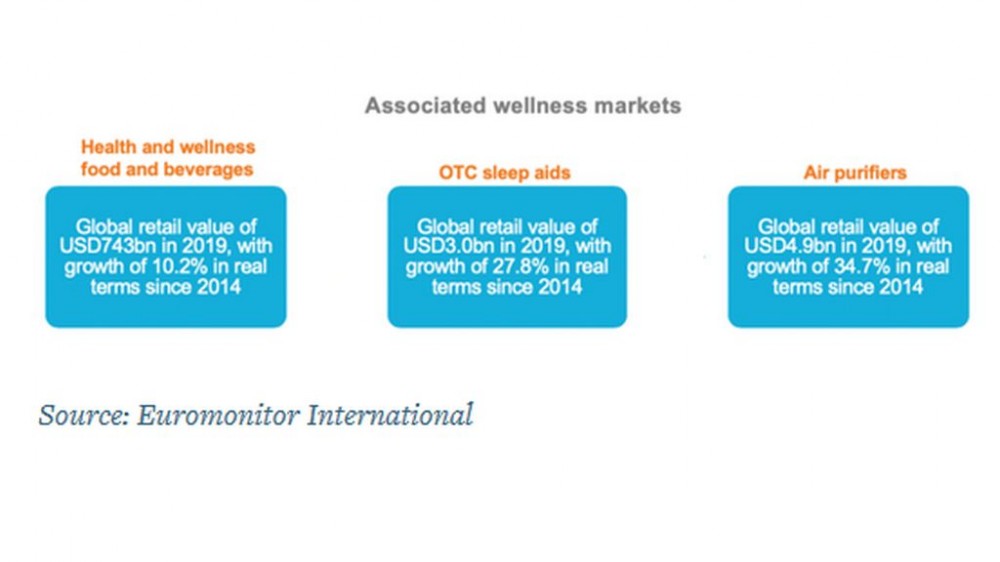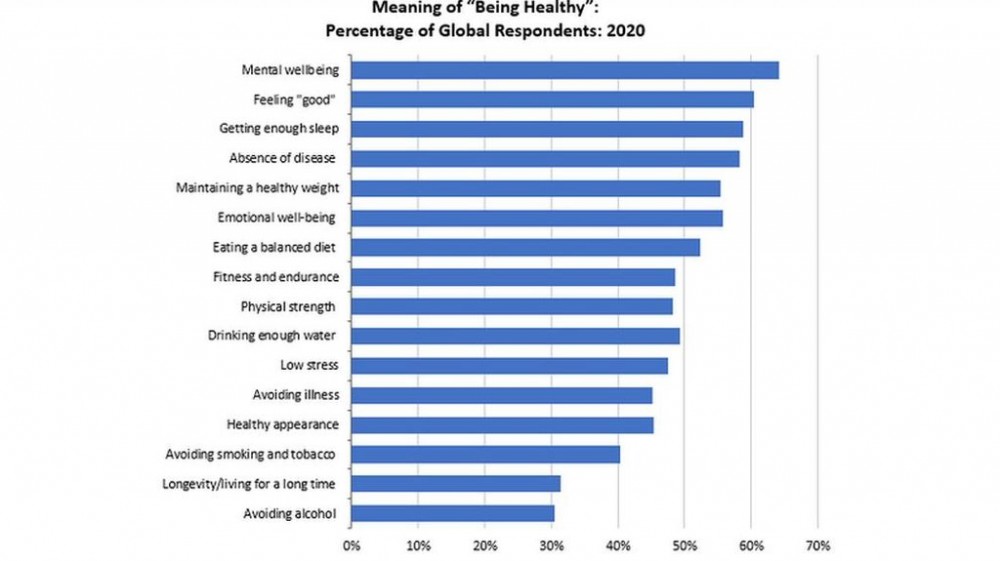Even before the Coronavirus (COVID-19) pandemic hit the global economy, consumers around the world were bringing wellbeing in-house, turning to new technologies and trends in the health and wellness industry. Drivers of the household wellness trend included the Millennial desire for experience and self-improvement, rising technology and broadband access, resulting in consumers choosing to cocoon at home, fewer children (a decline in children per household globally, from 1.4 in 2000 to 0.9 by 2040), allowing for greater discretionary spending, and a dramatic shift in attention to mental wellbeing.
With the COVID-19 pandemic forcing many to remain at home for protracted periods, and “cocooning” is further strengthened by quarantines and lockdowns, at-home wellness trends are accelerating:
• Quarantined consumers are embracing digital wellness products and content;
• COVID-19 health concerns are impacting areas such as mental wellbeing, nutrition and at-home healthcare for the elderly;
• Stuck at home during lockdowns, consumers want to feel more comfortable in their household, increasing demand for home and garden wellbeing products;
• With a global recession looming on the back of the COVID-19 impact, frugal-friendly cocooning trends will only strengthen.

Quarantined consumers embrace digital wellness products and content
Many of today’s home wellbeing trends, from using digital appliances to researching wellness trends online and ordering goods via internet retailers, are a result of digitisation.
Internet-enabled products and services worldwide are seeing massive spikes in demand as consumers seek to pass the time during virus-enforced lockdowns and social distancing measures, fuelling demand for at-home fitness products and services:
• US fitness specialist ClassPass, which has expanded its focus on home-based classes, has seen a jump in subscriptions throughout March and April 2020;
• Orders of Mirror, a USD1,495 fitness full-length connected device that comes alive with an LCD panel, stereo speakers, camera and a microphone, have also spiked throughout the 2-month period.
The fitness market will not move to the household wholesale, but it will embed habits and open up the segment to adoption among new audiences, making it a more widely accepted and mainstream activity.
Mental wellbeing rising in importance in light of pandemic effects
Rising anxiety levels during the pandemic are turning more consumers towards goods that can help with mental wellbeing. This is creating demand for home-based OTC sleep aid devices, especially as many health-conscious consumers are avoiding sleep aids that include the ingestion of chemicals. The global retail value of sleep aids reached around USD3.0 billion in 2019.
There are many kinds of devices that purport to improve consumers’ ability to both fall asleep and remain asleep, as well as improving the quality of rest. These include specialised mattresses, such as US-based bed specialist Eight Sleep’s Eight Smart Mattress, which includes a tracker that provides daily analysis of a sleeper’s quality of sleep.
Examples of rising usage of mental wellbeing services during the virus outbreak include:
• US-based TalkSpace, an online therapy company, reported at the end of March 2020 that the volume of users on the platform was up by 25% since the middle of February;
• Meanwhile, US mental health chatbots Wysa (based in the UK) and Woebot (based in the US) have also seen usage go up significantly throughout the February-March period.

Nutrition more important in improving immune systems during the pandemic
Nutrition has become a major influencing factor across household kitchens as consumer concerns over obesity and health rise throughout the pandemic. In particular, demand for immunity-boosting foods and vitamins to ward off pandemic symptoms is on the rise:
• At the end of March, UK-based health and beauty retailer Superdrug stated that stocks of immunity-boosting vitamins had run out due to massive consumer purchases;
• In mid-April 2020, on Amazon.com, 17 of the top 20 vitamin category products sold were immune related.
With more consumers taking up at-home fitness and heathier lifestyles to boost immune systems, personal nutrition demands have also focused on pre- and post-workout fuel, niche personal preferences like vegetarianism or health-focused diets, and a desire to consume in-trend superfoods like turmeric, kefir and kale.
At-risk older consumers turn to remote healthcare
With older consumers particularly vulnerable...................................................
By: Pavel Marceux
The article is property of Euromonitor International, a market research provider, and can be read in full at: https://blog.euromonitor.com/coronavirus-outbreak-to-accelerate-household-wellness-trends/


































